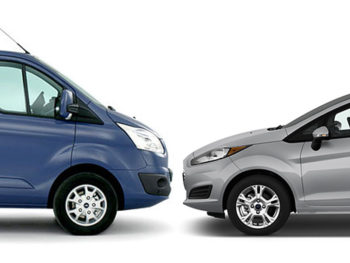Fleets and drivers are being warned of the risk of higher tax bills after an Upper Tribunal ruling on whether commercial vehicles should be classified as vans or cars for Benefit-in-Kind purposes.

The decision focused on the first and second-generation Volkswagen Transporter Kombi models – which offer two rows of seating with load space behind – and Vauxhall Vivaro vans. After looking at all the characteristics of the entire vehicle as provided to the employee, not just at construction, the Tribunal found the Kombis to be cars while the Vivaro was classed as a van. This left Coca Cola liable for the NICs paid on the BiK on the Kombis, while two Coca Cola drivers were faced with BiK bills.
The upper tribunal (UT) has now considered the matter further and upheld the FTT decision dismissing the appeals of both parties, despite the fact that this still leaves fleets in the dark, according to accountancy firm RSM.
The decision specifically set out that consideration of what vehicles might commonly be understood to be ‘cars’ or ‘vans’ is not directly relevant, nor is the use to which they are put. The design characteristics of the Kombis were equally suitable for carrying goods and passengers and therefore had to be cars as there was no primary purpose to their construction. On the other hand, the construction of the Vivaro, including its adaptations, was considered to be primarily suited to the conveyance of goods and was, therefore, a van for benefit in kind purposes.
In response, RSM has questioned whether employers must undertake a review of the mechanical and underlying design and structure of each vehicle?.
A spokesperson for the company added: “The position seems still to be hopelessly unclear, and HMRC guidance on the matter still does not reflect the findings of the FTT decision. Combi-type vans like those reviewed by tribunal are increasingly popular in businesses, having an ability to transport both goods and people and this is, perhaps, their downfall for benefit-in-kind purposes. Whilst in many cases, they will be used mainly for the transportation of goods, the additional seating, sometimes removeable, currently means that HMRC are likely to classify them as company cars and liable to income tax and Class 1A National Insurance accordingly.”
The firm added that some businesses might now decide to use double-cab pickup-type vehicles, as HMRC currently accepts these as vans for benefit-in-kind purposes, providing their payload is at least one tonne, excluding its hard top. However, RSM queried whether there is logic in this distinction by HMRC that a double-cab pickup is a van but a combi-van is a car.
“Both have a further row of seats for transporting passengers, and both might equally be suited to the transportation of goods. What is equally illogical is that a commercial vehicle based on the design of a panel van with considerable load capacity can be treated the same as a car which is designed for the transportation of passengers with a limited load space,” it added.
Instead the firm has called for updated legislation in the context of these combi vehicles, to allow businesses to meet their commercial needs without employees facing large and unexpected income tax costs.
It’s also noted that it will be interesting to see if the Upper Tribunal finding is appealed to the Court of Appeal.

